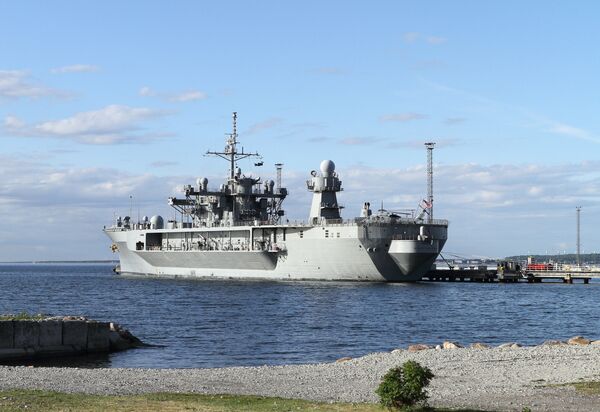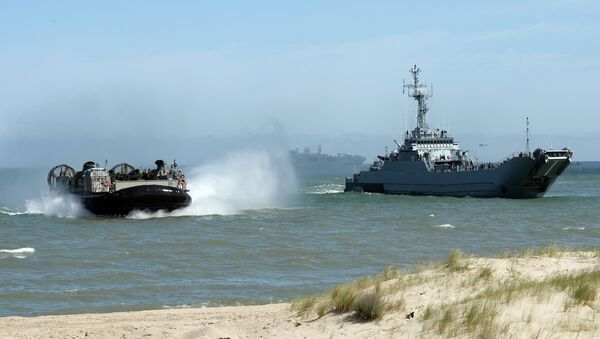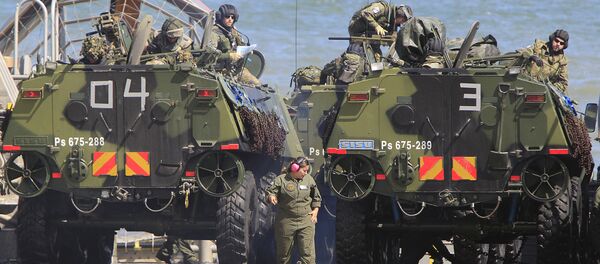Russia's deployments in the last two years "clearly show" what the country's priorities are. Moscow has been focused on areas to the south and southeast — in case conflicts in Ukraine, the Caucasus and Central Asia flare up. Not to mention that Russia's present battle missions take place in Syria.
"In this context, standoff with NATO is viewed as a headache that requires extremely costly and time-consuming efforts that siphon resources away from priority tasks," the analyst observed.

Meanwhile, the North Atlantic Alliance has been engaged in three large-scale military exercises close to Russia's borders. These include Baltops, Saber Strike and Anakonda. Approximately 6,100 troops from 17 countries take part in the former. A total of 10,000 soldiers are taking part in the US-led Saber Strike 2016, while the Polish-led Anakonda drills involved more than 25,000 troops from 24 states.
#Anakonda16 @USArmy HIMARS in action! pic.twitter.com/dkIaT4Wvgr
— PLinNATO (@PLinNATO) 15 июня 2016 г.
The North Atlantic Alliance plans to deploy four multinational battalions to Lithuania, Latvia, Estonia and Poland on a rotational basis. The UK, responsible for manning one framework battalion, wants to field its force in early 2017.
This move will be formally adopted at the NATO summit in Warsaw, slated to be held next month. It will be, as NATO officials have said, one of several measures aimed at reinforcing the bloc's collective defense from multiple threats. An "aggressive" and "resurgent" Russia, as hardliners in the US and Europe describe it, is viewed as one of them, although Moscow has repeatedly said that it does not pose a threat to its neighbors and beyond.
"The Baltic states and Poland want to preserve Russia's image as an enemy," the analyst explained.
Last week, German Foreign Minister Frank-Walter Steinmeier warned that the bloc's war-gaming was damaging to regional security and relations with Russia.






